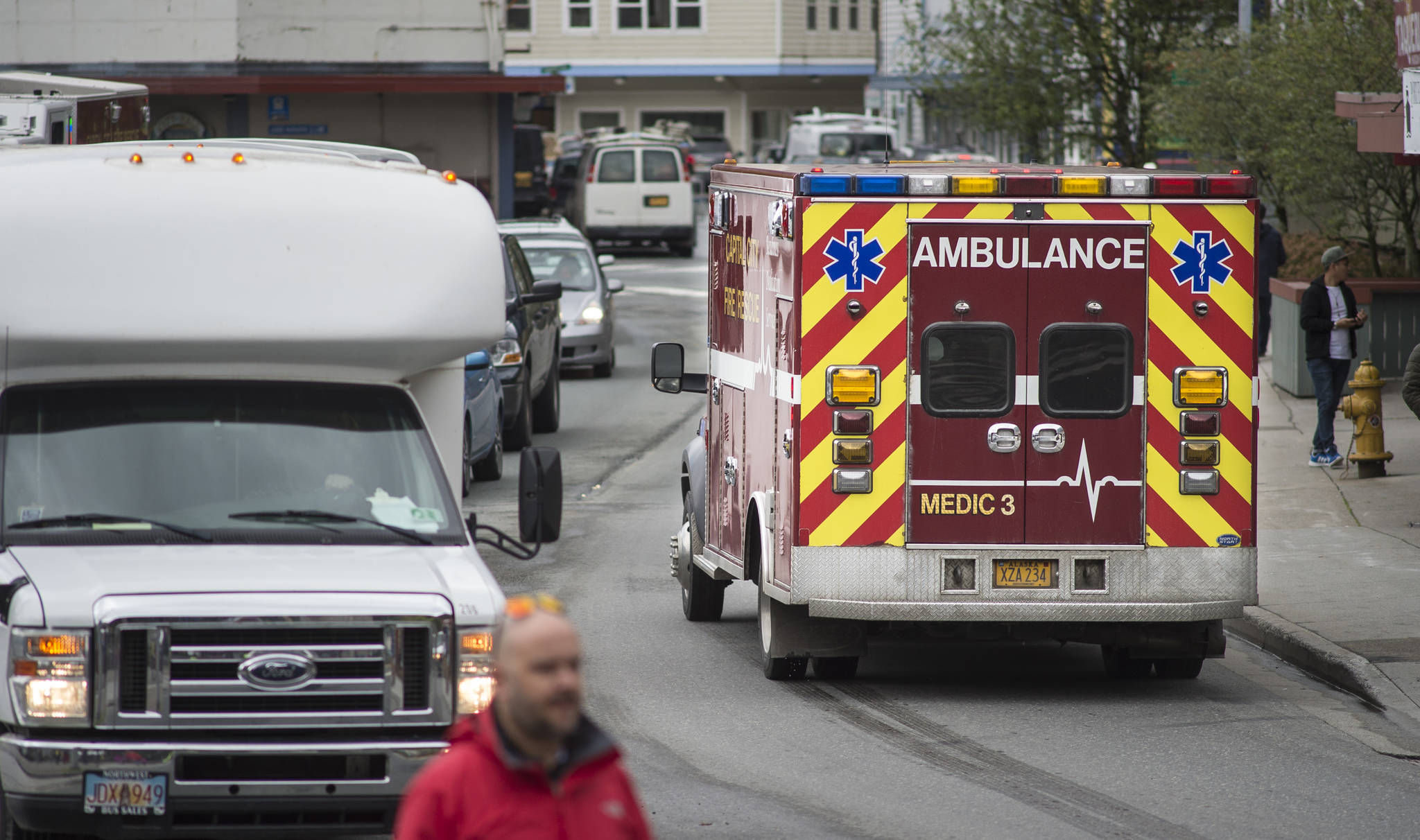Starting in October, Capital City Fire/Rescue will be able to have an extra ambulance staffed around the clock.
The City and Borough of Juneau Assembly unanimously approved funding for six additional employees, allowing CCFR to keep an additional ambulance staffed for 24 hours a day. The city will allocate $361,000 out of its savings to fund the positions, according to the ordinance, and the money is expected to be ready by Oct. 1.
Multiple firefighters were on hand, including International Association of Firefighters (IAFF) Local 4303 President Travis Wolfe. Wolfe was quoted in a press release in July urging the Assembly to provide funding to staff an ambulance 24 hours a day instead of 12 hours a day. At Monday’s meeting, he expressed his gratitude to the Assembly members for increasing their commitment.
“I think this ordinance is going to get us that first step we absolutely need,” Wolfe said, “and that’s getting that ambulance on the road 24 hours a day.”
Originally, city staff prepared to allocate $350,000 to staff an ambulance for 12 hours per day, but after hearing from the department and discussing it among themselves, the Assembly members agreed to open up their wallet a little bit more. The estimated cost ended up not being too much more, as Deputy City Manager Mila Cosgrove said at an Aug. 8 Assembly Finance Committee meeting.
CCFR Chief Rich Etheridge said after Monday’s meeting that he expects to be able to fill the new positions by Oct. 1. The department already staffs an extra ambulance during the summer months to assist with the increased number of calls due to heavy cruise ship traffic. Etheridge said he thinks some of those seasonal employees will be interested in year-round employment. He also said there are a few other temporary employees who might want to become permanent employees, and two other people have expressed interest in becoming emergency medical technicians (EMTs).
The new hires will start out at the lowest level — EMT1 — Etheridge said, which keeps the cost fairly low for the city.
“We start them out at the EMT1 level and try to keep them there for the first year because they have a lot of stuff to learn,” Etheridge said. “We cover every emergency that doesn’t require a police officer. They have to be proficient in driving, medical, fire, hazmat, rescue. It’s a myriad of things they have to be responsible for.”
The issue of increasing the department’s staffing has been brought up at Assembly meetings for a while, but the issue got jump-started this summer when Missouri research firm Fitch & Associates completed an in-depth study of the department and revealed its findings to the Assembly. Though the firm’s suggestion was for the Assembly to fund an ambulance for 12 hours per day, their findings began a conversation that led to the Assembly funding an ambulance for 24 hours.
According to the study, emergency calls in Juneau have increased from 3,486 in 2010 to 5,077 in 2017. The majority of those calls, nearly 76 percent, were for emergency medical services, while 18 percent were for fire-related incidents.
Emergency calls come in all different forms, retired U.S. Forest Service Naturalist Laurie Craig said at Monday’s meeting. She referred to the massive photo of the Mendenhall Glacier that’s on the wall behind the Assembly members and recounted the dire scenarios that have played out near the glacier.
“I look out at this scene behind you,” Craig said. “A man almost died over there, but these guys saved his life just before he died. We’ve had heart attacks, we’ve had broken hips, we’ve had so many things happen in view of this amazing place. We have trained staff where I worked, but yet, when I would hear the sirens come roaring, I always felt better because I knew professionals and heroes were going to take care of the people who were about to die in one way or another or who needed medical help.”
• Contact reporter Alex McCarthy at 523-2271 or amccarthy@juneauempire.com. Follow him on Twitter at @akmccarthy.

